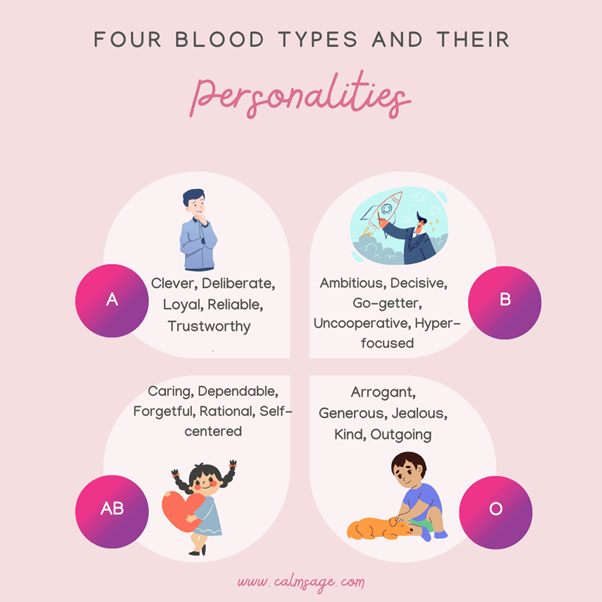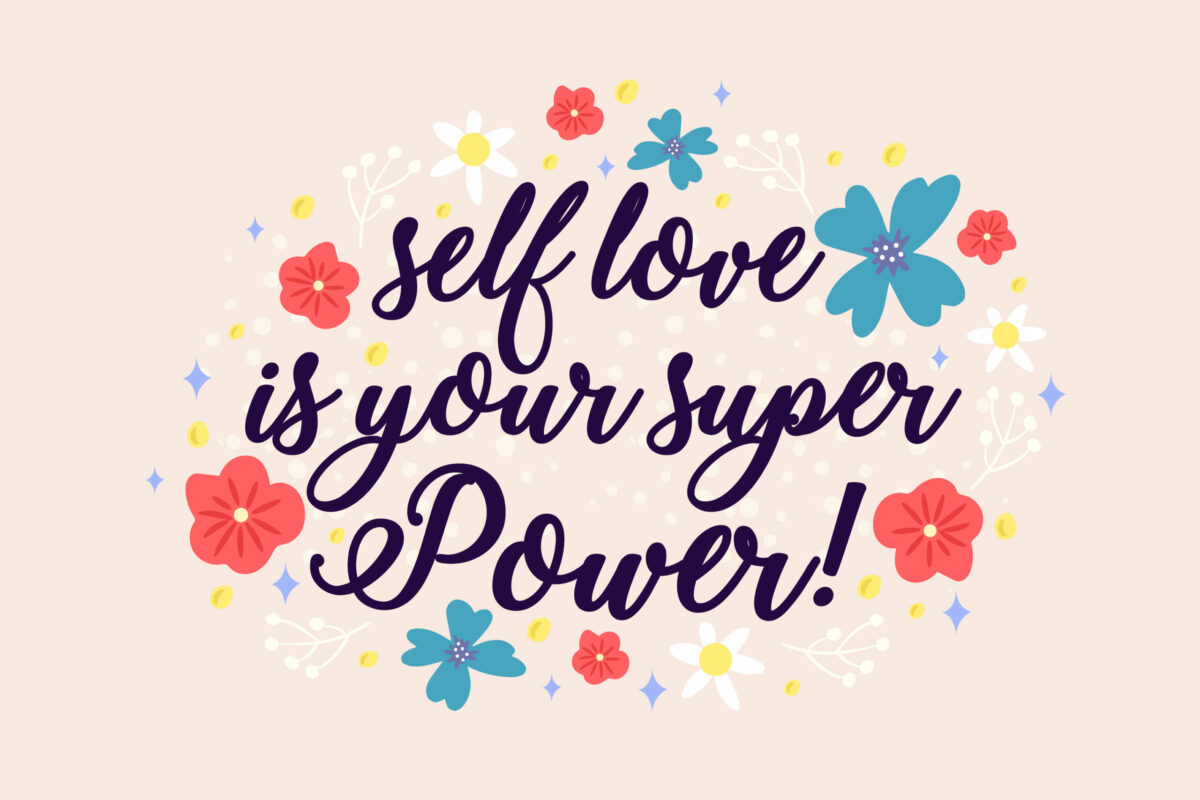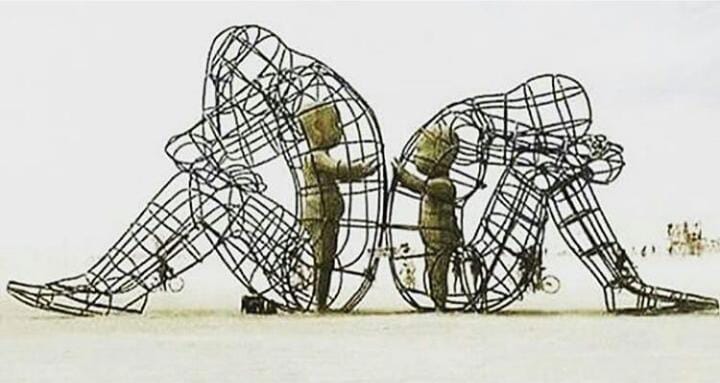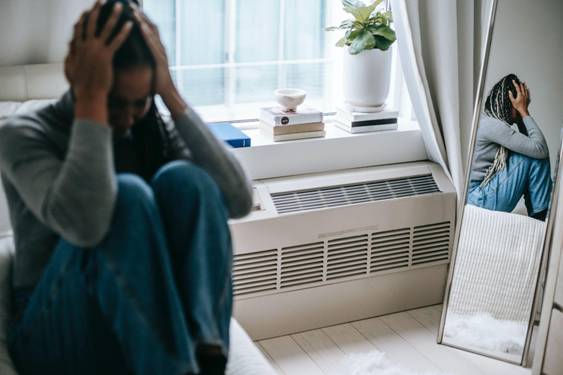Understanding Blood Type Personality: Can You Determine Personality From Your Blood Type?
My daughter and I share the same blood group, which explains where she got her personality from!! I am calmer, more confident, resilient, and of course a self-centered person in real…so is my daughter. Well, it is a real thing… a blood type has a great influence on the personality. Personality grouping goes back far to the time even before the idea of zodiac signs was developed.
You might have seen so many personality tests online or offline but you can also predict someone’s personality through their blood type. The concept of blood type personality is called Ketsueki-gata.
Biologically, there are 8 types of blood that can bring out different personalities according to the concept of Ketsueki-gata. Do you want to know more, well keep reading this blog and understand your personality based on your blood type.
Understanding the Concept of Ketsueki-gata
Let’s begin with some history first, so this concept originated in 1930 by Japanese Professor Tokeji Furukawa in a report titled, “A Study of Temperament and Blood-groups.” In this report, Furukwa argues a connection between blood type and personality which can be used to study temperament further.
According to his report, there are four body fluids that influence behavior and personality. Later, Furukwa established two classifications of temperaments such as psychological and physiological.
This concept is widely used in physiology for explaining the essence. In this report, Furukwa mentioned details of blood type corresponding with temperaments. The concept of Ketseuki-gata is still discussed in several papers, books, studies, and reports widely including in Asia and other parts of the world such as the United States, Australia, and more. as of now, Ketseuki-gata’s concept is used as a scientific study to understand the link between temperament and blood type.
In the study, Furukwa assessed personalities on the basis of an 11-question survey wherein he established a connection between his study. Though the study didn’t include a major population, it still holds its importance in psychology.
According to the results published in the study, I could conclude that:
- “O” Blood Type People are more peaceful or relaxed (Phlegmatic)
- “A” Blood Type People are more deep thinkers and self-reliant (Melancholic)
- “B” Blood Type People are more socially active and outgoing (Sanguine)
In 1970, Masahiko Nomi took the blood-type concept of Ketseuki-gata a step ahead. Nomi mentioned this concept in the book titled, “Understanding Affinity by Blood Type” and the book was titled to be a bestseller in Japan. After all of this acceptance and wide understanding, does the concept of blood type personality hold scientific pieces of evidence, let’s find out in the next section.
Scientific Evidence Related to Blood Type Personality
When the concept was introduced, there was no scientific evidence related to it, which was a cause for concern. Digging deep into the science, we all are aware that certain blood types are more resistant to health conditions. There’s even a study that mentioned blood-type specific diet can be really used for certain blood types and the maintenance of overall well-being.
But I was not able to find relevant studies or reports related to blood type personality in a large group. However, I could find a study that can help us understand the concept simply and effectively.
The study mentioned that our blood type can be detected from the surface of the red blood cells and this is how the ABO blood typing system was invented that involved four main blood types:
- “A” blood group contains “A” antigen
- The “B” blood group contains the “B” antigen
- “AB” blood group contains “A” and “B” antigens
- The “O” blood group contains no antigen
In this study, the authors described how certain blood types have a great genetic influence on certain chemicals of the body and they highly influence sensation and impulsion-seeking behaviors. In this way, I could understand the link between personality and blood type.
However, this clearly does not mean that our personality is based on our blood type but we can say that our blood type can be a factor that also helps in developing our personality. Now, let us find out our personalities based on the concept of Ketsueki-gata.
Blood Types and Their Personalities

Despite the theory, concepts, discussions, and several studies published on the contrary of the blood type personality, Furukwa’s concept remains a widely understood concept. As we all know that we follow the ABO Blood Grouping system which involves four types of blood types:
- “A” blood group contains “A” antigen
- The “B” blood group contains the “B” antigen
- “AB” blood group contains “A” and “B” antigens
- The “O” blood group contains no antigen
This makes us understand that our blood type is based on the presence of antigens which are present on the surface of our red blood cells. Let us find out how Furukwa described personality types based on these four blood types:
1. Blood Type A Personality
People with blood group “A” are known to be the positive kind of people. They are creative, clever, and cooperative but they also have some negative traits such as uptightness and stubbornness. Below listed are the common personality traits of people with blood type “A”
- Clever
- Consistent
- Cooperative
- Creative
- Deliberate
- Loyal
- Nervous
- Organized
- Reliable
- Sensitive
- Stubborn
- Trustworthy
- Uptightness
2. Blood Type B Personality
People with the B-type blood group are known to be passionate, strong, decisive, and empathetic but they also have some negative traits such as erratic and selfish behavior. Below listed are the common personality traits of people with blood type “B”
- Ambitious
- Carefree
- Cheerful
- Decisive
- Empathetic
- Erratic
- Go-getter
- Hyper-focused
- Outgoing
- Passionate
- Selfish
- Uncooperative
3. Blood Type AB Personality
People with the AB type of blood group have more alleged strengths like adaptability, rationality, and caring personality but at the same time, they struggle with criticalness, rationality, and forgetfulness. This blood type is very rare but study shows that such types of people are always appreciated around the world. Below listed are the common personality traits of people with blood type “AB”
- Caring
- Composed
- Critical
- Dependable
- Forgetful
- Indecisive
- Popular
- Rational
- Self-centered
- Sociable
4. Blood Type O Personality
People with blood type O have great characteristics such as resilience, determination, and self-confidence but at the same place, they are also unstable and self-centered. Below listed are the common personality traits of people with blood type “O”
- Arrogant
- Confident
- Generous
- Insensitive
- Intuitive
- Jealous
- Kind
- Optimistic
- Outgoing
- Unpredictable
Pros and Cons of Blood Type Personality Concept
Below are some of the common pros and cons of and blood type personality concept introduced by Furukawa:
Pros:
- This study shows how blood can have a direct impact on our personality, additionally, how physical processes affect our thoughts, behaviors, and feelings.
- This study also talked about how chemical imbalances create mood fluctuations and how they can serve as a great attribute to our personalities.
- This study does not cover much scientific shreds of evidence but it does focus on how our bodies are connected with our mind or vice versa.
Cons:
- This study lacks more scientific pieces of evidence and empirical backing.
- This concept is widely accepted in Japan but it is still known to be controversial in other countries worldwide.
- This study also mentions cultural practice in Japan which is harassing and discriminating.
I hope this post helps you understand the concept of Ketsueki-gata and your blood type personality. Comment down and share your views based on your personality and blood type.








